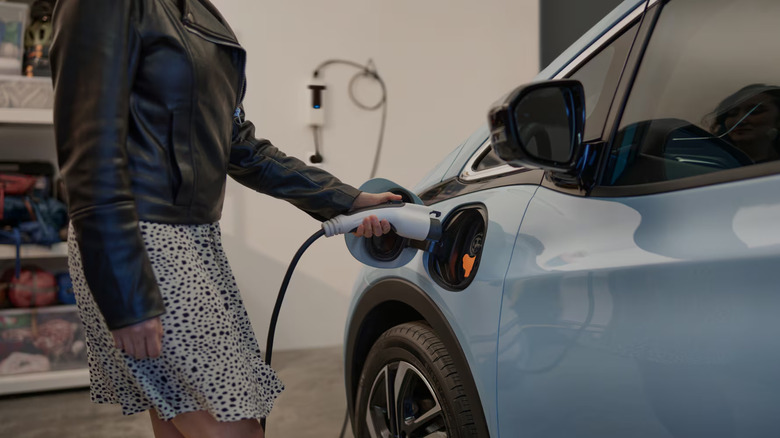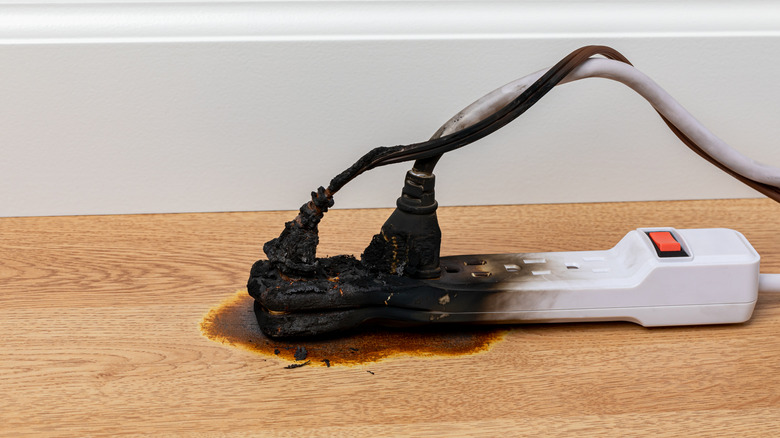Can You Charge An EV With An Extension Cord?
When it comes to owning an electric vehicle, one of the things you're probably most concerned about (besides range anxiety) is charging it. Typically, there are three ways you can top up your car. Level 1 is with a charging cord from the manufacturer. You simply plug it into a standard wall outlet, and you're good to go. Level 2 is with a professionally installed home charger. It can charge your car considerably faster than Level 1, but it comes at a cost. The last of the three EV charging levels is Level 3, known as DC fast charging and found in EV charging locations outside your home.
If you don't have dedicated space or budget to install a home charger or are quite a distance away from the nearest EV charging station, your best bet is the Level 1 charging route. But there's one problem with most EV charging cords: their length. For instance, Tesla's Mobile Connector and Ford's Mobile Power Cord are only 20 feet.
What if your car is too far from the outlet? Can you just plug your EV charger into an extension cord instead? Unfortunately, no. There are serious safety risks if you charge your EV with an extension cord.
Why you wouldn't want to charge your EV with an extension cord
EV manufacturers and the National Fire Protection Association (NFPA) strongly discourage the use of extension cords when charging an electric vehicle. In fact, it's explicitly stated in the owner's manual of brands like Tesla, Chevrolet, and Kia not to plug the car into an extension cord. This is largely due to the associated risks of damage, fire, and electric shock.
Extension cords come in different gauges with rated amperages, the biggest of which is a 10 Gauge that can handle up to 20A devices. However, this isn't enough to support the current the EV requires to charge, especially now that most portable EV charging cords now function as a Level 1 and Level 2 charger. With Level 1 charging, the charger can provide up to 15A, while with Level 2 charging, this current can go to as high as 80A. You should also consider that charging your EV can take overnight, roughly ten hours or more depending on whether you're using Level 1 or Level 2. A high level of amperage plus continuous and extensive hours of usage would overheat the extension cord, damage the charger, and even cause a fire.
On top of the serious safety risks, charging your EV with an extension cord isn't even efficient either. The length of the cable prevents proper voltage transfer, creating drops that then lower the charging speed or stop the charging altogether. So even if your portable EV charger works with an extension cord, you'll likely run into charging problems down the line. It's still best to plug it directly to a wall outlet as instructed by the manufacturer. To further minimize the safety risks, regularly maintain your EV home charger system.

